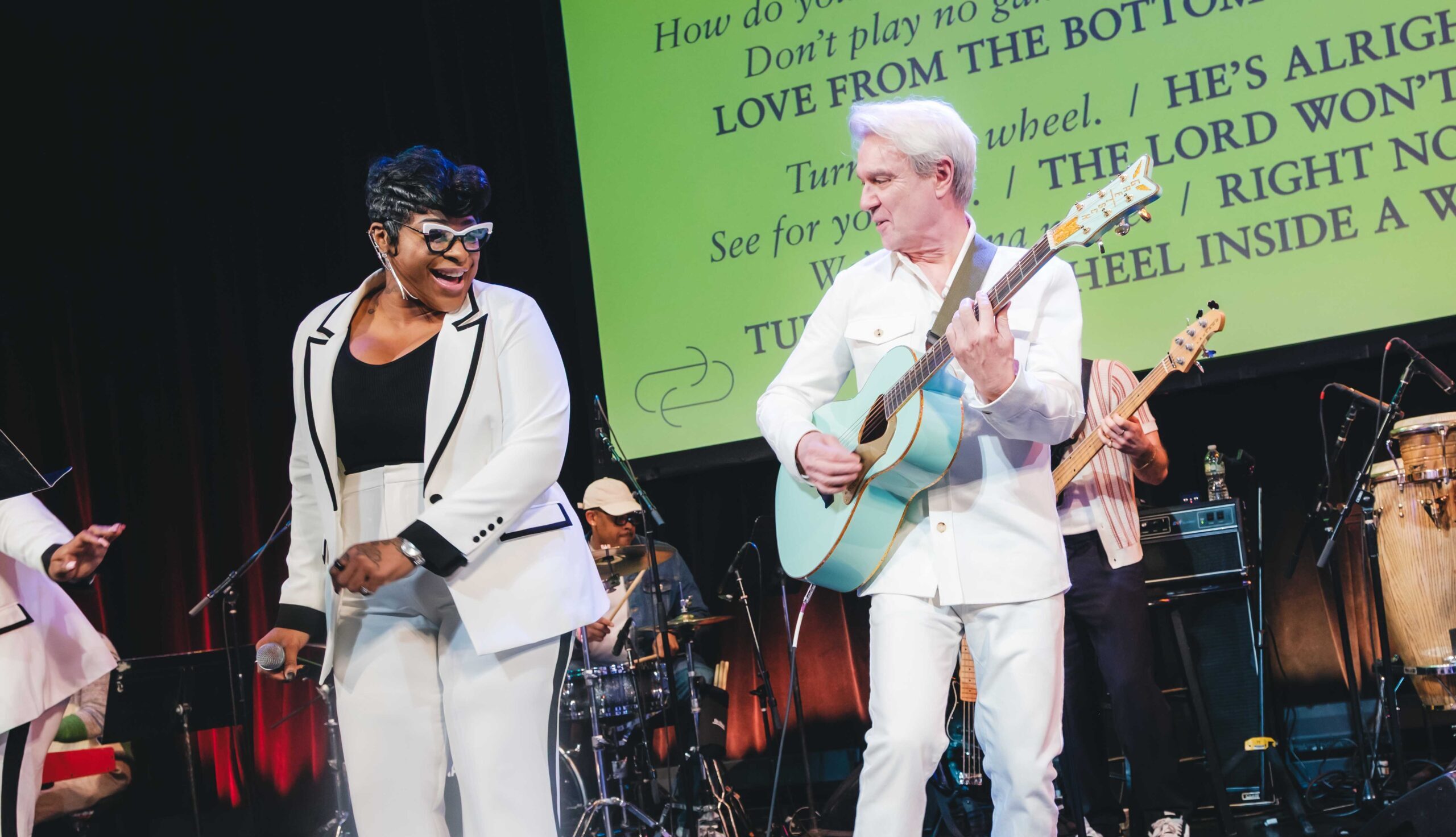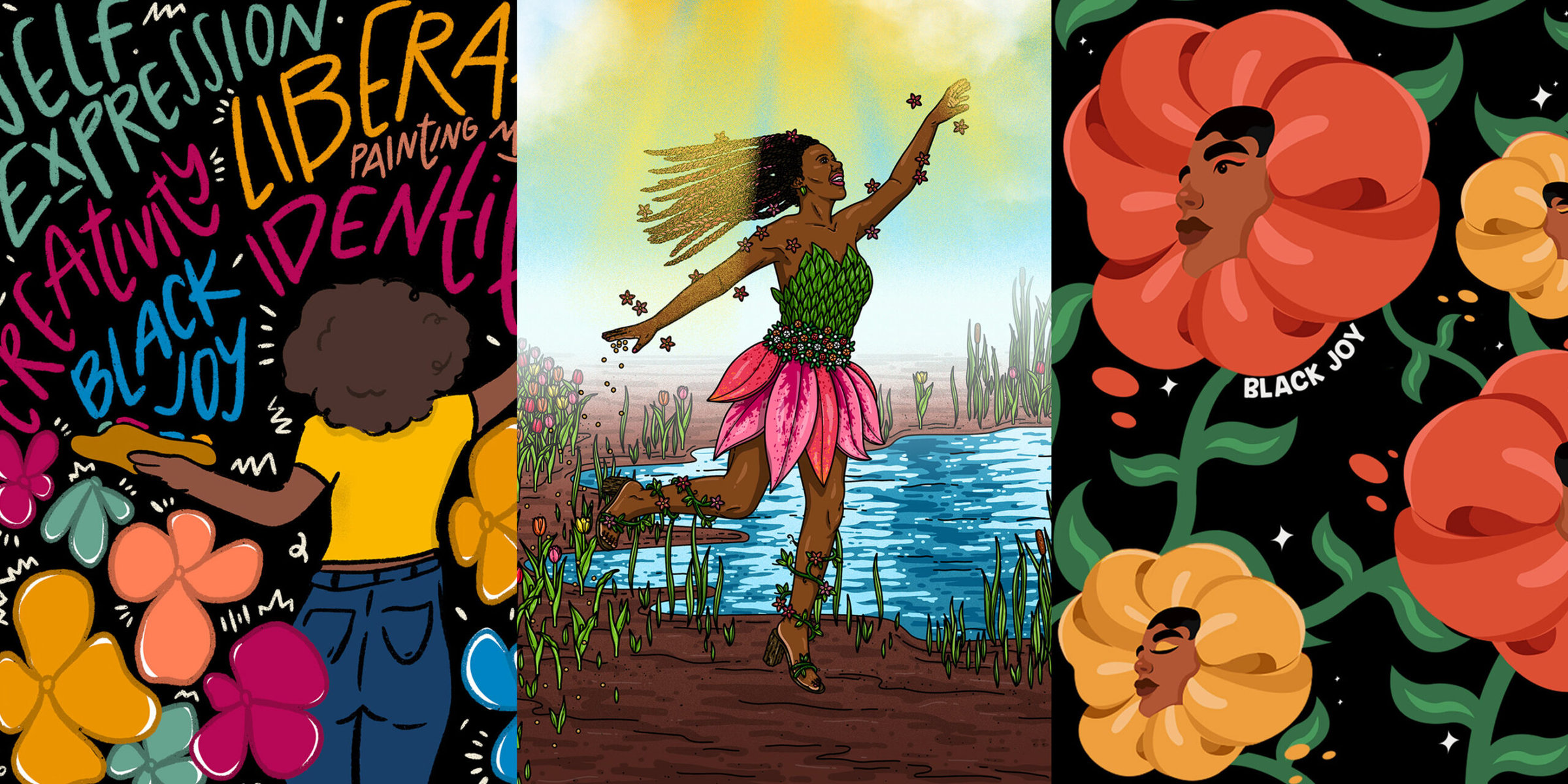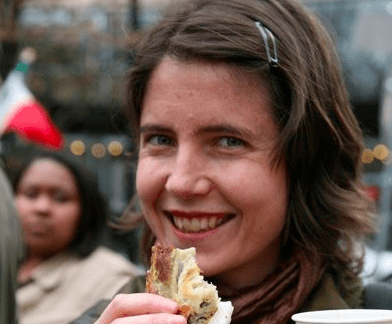In the summer of 2020, when protests against police brutality were taking place in Portland and Salem, Oregon, Julianne Jackson was there with the crowds on the streets, chanting for justice. But something nagged at her. Jackson, a Black woman with a loud voice and an infectious laugh, began to feel that she was not being accurately represented.
“There was a lot of hatred, a lot of vitriol and a lot of things I didn’t necessarily identify with,” she says. “And while I understand those feelings — I have them, too — it didn’t represent me as a Black woman. Black women throughout time have really been known for our ability to find joy in all kinds of situations, our ability to nurture, our ability to stand firm in the face of things that are really, really difficult.”
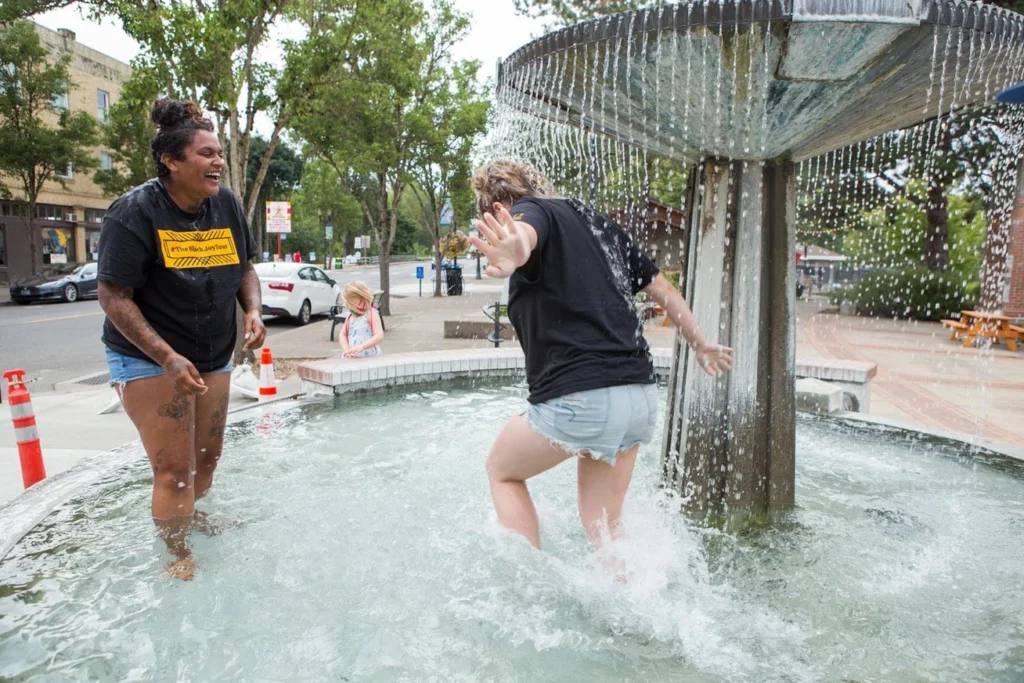
One night, she woke with an epiphany. She and her wife had met folks at Portland’s protests who were from the state’s rural areas. “They asked, ‘If we were to do something like this [a march], who would come and stand with me?’” Jackson decided that Oregon’s rural towns could be the perfect place to benefit from a different kind of racial justice march — one oriented around joy instead of anger.
The next day, with the help of her friend Emily Terry, Black Joy Oregon was born, a nonviolent organization that shows up in rural areas to demonstrate loving and joyful celebrations of Black culture. When they travel to rural towns they stand at busy intersections and hold up signs emblazoned with messages of love for the Black community — Black is beautiful, Black is revolutionary, Black lives uplift, and so on. “We smile and wave at folks, dance and just spread love and joy,” Jackson says. They also build connections with community leaders and provide access to resources and assistance for Black folks.
Since then, the group, composed of seven member-leaders and an informal “travel team” of around 14, has traveled to 170 towns across the state, from the Southern coastal hamlet of Coos Bay to Pendleton, where the famous wool blankets are made.
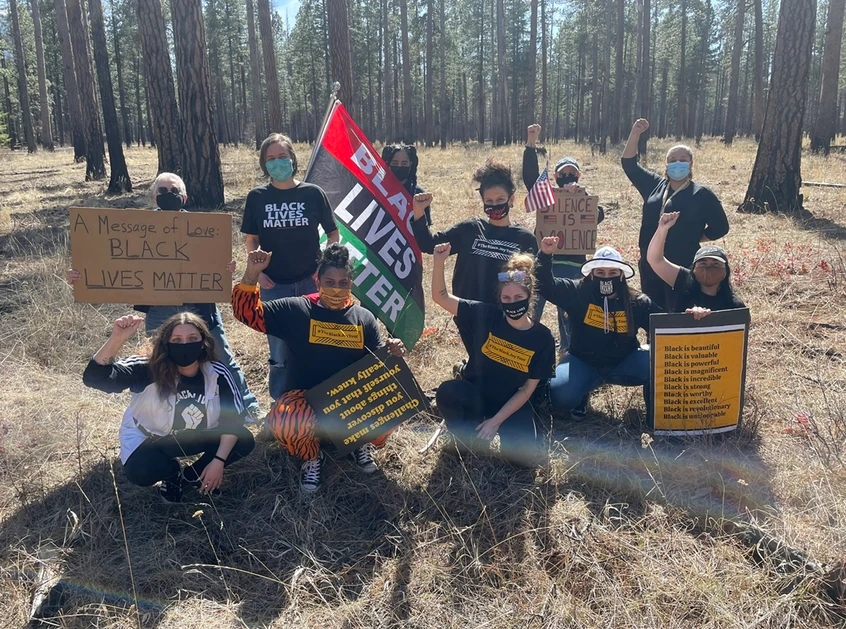
Many of these are places where virtually everyone is white. “I’ve met people who are like, ‘I’ve never seen a Black person in real life,’” Jackson says. “And if all you’ve seen is a Black person on Fox news, burning up Portland, what does that say to you?”
Jackson, who is biracial, has seen the white members of her family learn and grow. “I think that’s really where Black Joy comes from is this desire to help turn the lightbulb on for people to do better,” she says.
This lack of exposure can make even the simplest of positive interactions profoundly impactful. One of the most memorable experiences for Jackson was early in the pandemic, in August of 2020. She and a core group of Black Joy women were trying to find ways to help people escape the fast-moving Beachie Creek Fire. Jackson was scrolling through Facebook and heard about a couple who needed help evacuating their entire farm in Stayton, Oregon, a farming community 16 miles southeast of Salem.
“We found this one post and they needed help evacuating. They sent us their address. And when we pulled up to their farm it literally was like: Trump, Trump, Trump. Trump on a bald eagle, Trump with abs — I mean, it was crazy.”
Upon seeing the signs, she and her Black Joy compatriots exchanged nervous glances. Jackson was wearing a Black Lives Matter sweatshirt and had BLM stickers covering her car. Her friend wore a shirt that said “Humanize Being Black.”
“We were all looking at each other like, what the fuck? And we just got right to work. We were like, ‘Whaddya need?’”
The 60-something white man and his wife who owned the farm asked the women for help corralling the farm animals. Within no time, everyone was grabbing sheep, turkeys, ducks and other livestock. “We were catching chickens with nets. I mean, it was wild!” Jackson laughs. “And I’m not a farm girl by any means.” To prove her point, she flashes me her long, curved nails over our Zoom call. “Then there was a bull. This bull is scared, you know. We are trying to wrangle this bull into this little trailer. And it is not working at all. Luckily these amazing cowboys came out of nowhere and just lassoed it. It was phenomenal.”
They ended up getting all of the farmer’s animals to safety, even helping to drive some of them in their own vehicles down to a farm in Salem that was willing to take them temporarily. “When we had gotten everything completed, this dude kinda looked at us, and his eyes were welling up and he said, ‘This is what America needs. This is what works.’”
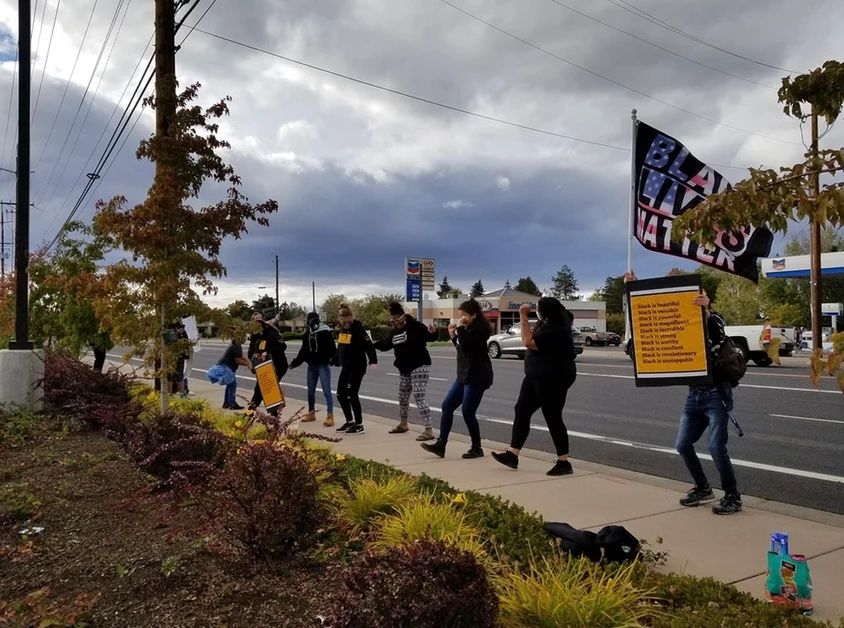
Not everyone agrees. Jackson says that she and the Black Joy Oregon crew have been criticized by other Black Lives Matter activists for helping people perceived to be antagonistic to the cause.
“That’s a really important concept to me,” Jackson says. “If you’re on fire, I’m not going to ask you if you voted for Trump first before I put you out. I’m going to put you out and we can talk about all of that later, if that’s what needs to happen. For me, it’s so imperative that we be human first.”
She goes on, “That couple, I bet you they were like, ‘Antifa just rolled up to our house,’” when they saw Jackson and her assembled group of women emerge from their cars. “They thought anybody on the left was there for doom and gloom and destruction. And you know, to be able to put a different face to that for them…I don’t know the end result. I hope we were able to enlighten them. I hope when people around them were like, ‘Antifa is starting fires in Portland,’ that they were like, ‘No, Antifa actually just moved our sheep!’”
Weighed down by negative news?
Our smart, bright, weekly newsletter is the uplift you’ve been looking for.Not all of their experiences have been positive. In Coos Bay, a local Black activist who had been receiving death threats invited them to town to host a nonviolent march. They were met by a large group of aggressive counter protesters, many of them armed. The group of white locals followed participants of the march, clearly trying to intimidate them. “Coos Bay was the only one where I thought we might actually die,” she says.
A few times, they’ve been in small towns where something they initially perceived as sinister turned out to be a warm welcome. A few towns away from Coos Bay, a white man pulled his truck over by the group of women, recalls Jackson, “He came in hot and we were hella worried. With tears in his eyes, he said, ‘My son is biracial, my grandson is biracial. We’ve never seen Black people here. Thank you for coming and thank you for standing up for my grandson.”
Something similar occurred in the coastal town of Otis (population: 3,450). “We were on the side of the road. This dude from the pizzeria comes out and he’s like, ‘I never thought I’d see anybody stand up for people who look like me.’ The lady came out and gave us Pronto Pups! We had a great time!” In the town of Sisters, a group of residents got together and bought the Black Joy volunteers dinner.
The nonprofit has been financed almost entirely by donations and one small grant from Willamette University. This winter, they’re taking a short break from travel. (All of the volunteer leaders have families and full-time jobs.) Jackson, who works in criminal justice reform, says they’re thinking of broadening the organization’s scope to include more advocacy work. But she also expects they will resume travel to remote parts of the state in the spring.
Cara Turnquist couldn’t go to the 2020 protests because she’d just had a double knee replacement. But Jackson was a friend of a friend of hers, and Turnquist was drawn to her approach. “I loved that she led with love,” says Turnquist, who is white. “I really believe that that is the way that we’re going to make change because I don’t see a lot of progress happening when people are called out. But I do see progress happening when people are called in. And so I wanted to put my efforts behind something that I believed in so much like that.”
The owner of Push Fitness, Turnquist realized that even if she couldn’t join a march, she could organize a fundraiser for Black Joy. She called it Squats for Social Justice. The first year, it took place on Zoom, and in 2021, in the parking lot of a gym. This past November they held it at Willamette University. Participants were pledged a certain amount of money per squat.
Member-leader Emily Terry, who is also biracial, says Black Joy has created this kind of supportive community. It started at the protests, which she attended by herself until she got to know Jackson and other women who were showing up. “We can talk about how we impact our community around us, but one of the best things is the community we have created for each other,” says Terry. “I know that it doesn’t matter what happens — they will be here when I need them. With any amount of bail money!”





